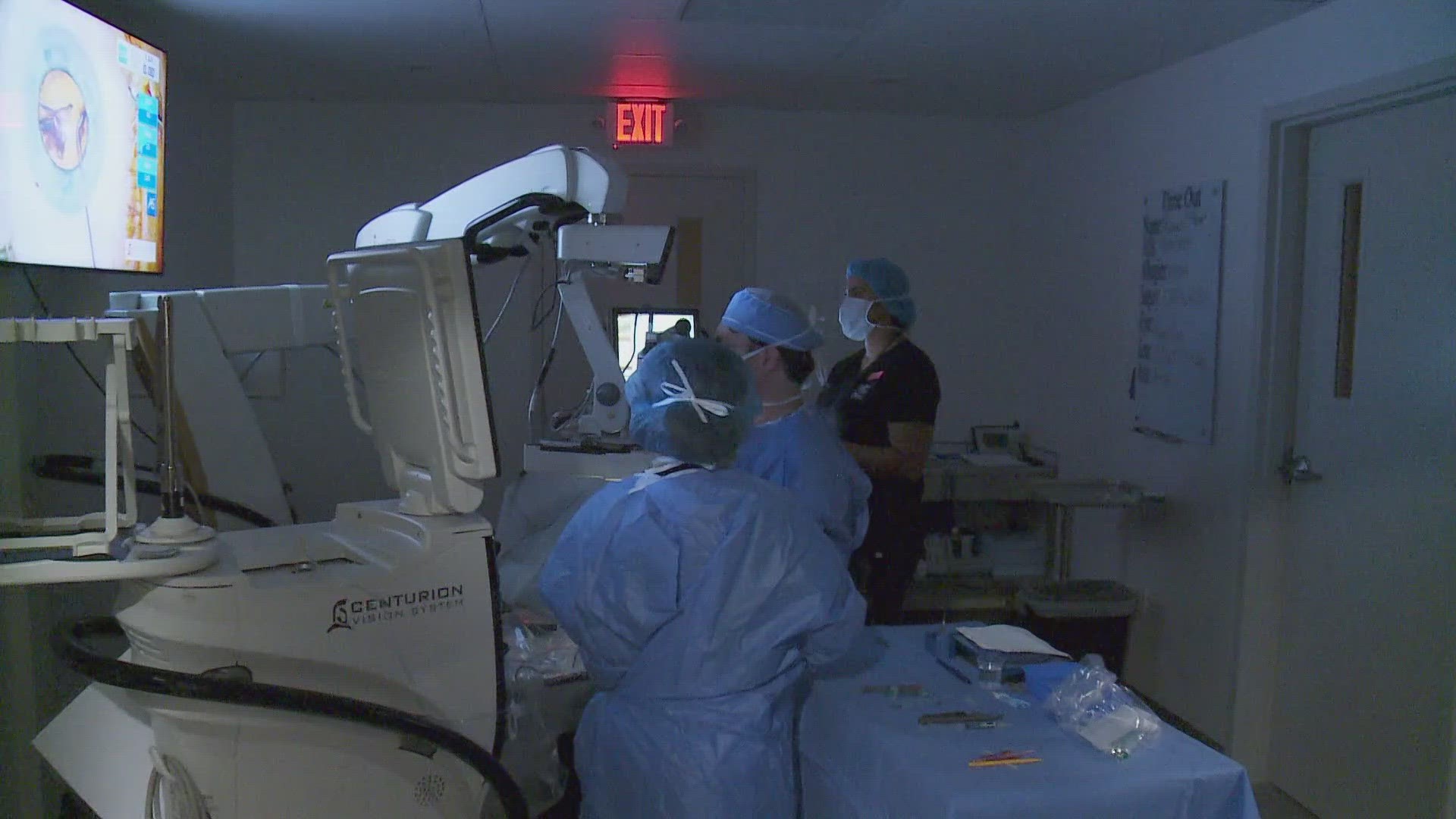METAIRIE, La. — Cataract surgery is one of the top five medical procedures in the U.S. And now there's a quicker way to give you clear vision back. It is all done in the doctor's office in about 15 minutes.
Rick O’Krepki doesn't let the grass grow under his feet. He seizes every moment possible around the globe, but a few years ago he began seeing the world through a cloudy lens.
“Not quite as sharp in the distance, slightly blurry. I was having, I'd have to get a little bit closer to street signs on the highway to see them clearly,” Rick O’Krepki said.
Now, at the age of 67, Ophthalmologist Dr. Brendon Sumich said it's time to remove his cataracts.
“I've had lots of friends and relatives that tell me once this procedure's done, it’s tremendous improvement, and I'm looking forward to that,” he said right before his procedure.
Rick is having the procedure at the Caplan Eye Clinic in Metairie. It's the first office-based cataract surgery suite in Louisiana. It's more convenient and affordable for patients.
First Rick’s vitals are checked. Then he is given medication to help him relax, along with numbing eye drops.
In the office O.R., Dr. Sumich will only take about 10 to 15 minutes to remove the cloudy, natural lens he was born with, and replace it with a new artificial one. There is only a tiny incision in the eye that will heal on its own without stitches. Rick is wide awake the entire time. The new lens is a trifocal one.
“Which can fix the distance vision, computer vision, and the reading vision, which you know obviously a lot of patients are interested in,” said Dr. Sumich.
When the other eye is done in two weeks, he will have 20/20 vision for life, and will never need glasses.
“But like for the most part, they're driving the next day. They can do office work the next day.
They're going out to dinner with their friends the same week. They take some eye drops for a few weeks afterwards, just to help things heal. Their vision actually comes back within about a day or two,” Dr. Sumich explained.
“Little bitty, slight bits of pressure as the work was being done, but no pain, and it was as smooth as it could be,” said O’Krepki.
Dr. Sumich says genetics only play a small role in who gets cataracts. There are some medications, eye trauma or previous eye surgery, along with having diabetes, that put you at higher risk. Another is sun exposure, something Rick has had in all of his outdoor adventures since he was a young lifeguard. His post op is done shortly after the procedure, including a vision check. And then it's off to another worldly adventure.
“Alaskan cruise, and then take my niece for high school graduation to Europe for two weeks,” said O’Krepki.
And those are places where there is clearly a lot to see.
The doctor says the average age to need the surgery is around 65 to 70, but he has had patients as young as in their 20s.
Around 95 percent of cataract patients qualify for the office-based procedure.

